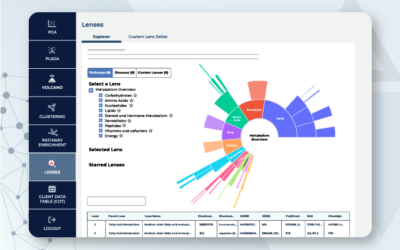Cannabinoids are part of the terpenoids class, a category of secondary plant metabolites, and appear as both cannabinoid receptor antagonists and agonists.1 They are found in marijuana as well as in synthetic and natural compounds.1 Use of marijuana can result in mild dependence as the cannabinoids impact brain reward processes.1,2
Current Cannabinoid Applications for Disease States
Studies document the benefits of cannabinoids for various disease states. In patients with anorexia due to AIDS or cancer, cannabinoids offer potential benefits for weight gain.3,4 Further research on multiple sclerosis notes cannabinoids reduce inflammation of spinal cord and brain, a documented contributor of disease pathogenesis.1,5 Activation of cannabinoid receptor 2 (CB2) on autoreactive T cells and cannabinoid receptor 1 (CB1) on neurons correlated with suppression of central nervous system autoimmune inflammation.6
In addition, cannabinoids can improve outcomes for central nervous system pathologies and others characterized by chronic inflammation.7-9 For example, studies document the potential efficacy of cannabinoids in the treatment of chronic inflammatory disease atherosclerosis, a cause of heart disease.10
Moreover, research notes the potential for cannabinoids to support patients with neurodegenerative disorders like Parkinson’s disease, as cannabinoids can give neuroprotection and guard against 6-hydroxydopamine toxicity.11,12 Specifically, CB1 receptor agonists offer the potential to reduce levodopa-induced dyskinesia, while CB1 receptor antagonists offer therapeutic applications for the treatment of both levodopa-induced dyskinesia and parkinsonian symptoms.13
Huntington’s disease (HD) research can also leverage cannabinoids to develop novel therapies. In HD, patients experience near complete loss of CB1 receptors, which suggests cannabinoid agonists may support the research of viable therapies.14-16 THC cannabinoids offer the potential for treatment of Tourette syndrome (TS), as studies document the potential of THC metabolite to reduce tics.17,18
In addition to potentially supporting neurodegenerative disorder research, cannabinoids show promise for therapeutic applications for post-traumatic stress disorder (PTSD), bipolar disorder, insomnia, anxiety, depression, and schizophrenia.1,19-21
Further research shows expression of CB1 and CB2 cannabinoid receptors in human melanomas. In particular, receptor activation can slow proliferation, growth, metastasis, and angiogenesis.22,23
Metabolomics for Cannabinoid Analysis
Given the publications to date demonstrating the potential for cannabinoids to drive viable therapies for an array of disease indications, future studies can benefit from incorporating cannabinoid analysis into their research.1
With Metabolon’s growing global metabolomic library and validated panels, we are excited to contribute to your cannabinoid research, helping you gain insights more quickly and ultimately get closer to understanding and combating many major diseases. Cannabinoid analysis is a growing field of exploratory research, and we will continue to share our insights along with new research as discoveries are made.
Ready to see what new insights cannabinoids can help your research reveal?
Contact us today to discuss your project or study.
References
- Kogan NM, Mechoulam R. Cannabinoids in health and disease. Dialogues Clin Neurosci. 2007;9(4):413-430. doi:10.31887/DCNS.2007.9.4/nkogan
- Nordstrom BR, Levin FR. Treatment of cannabis use disorders: a review of the literature. Am J Addict. 2007;16(5):331-342. doi:10.1080/10550490701525665
- Beal JE, Olson R, Lefkowitz L, et al. Long-term efficacy and safety of dronabinol for acquired immunodeficiency syndrome-associated anorexia. J Pain Symptom Manage. 1997;14(1):7-14. doi:10.1016/S0885-3924(97)00038-9
- Beal JE, Olson R, Laubenstein L, et al. Dronabinol as a treatment for anorexia associated with weight loss in patients with AIDS. J Pain Symptom Manage. 1995;10(2):89-97. doi:10.1016/0885-3924(94)00117-4
- Achiron A, Miron S, Lavie V, Margalit R, Biegon A. Dexanabinol (HU-211) effect on experimental autoimmune encephalomyelitis: implications for the treatment of acute relapses of multiple sclerosis. J Neuroimmunol. 2000;102(1):26-31. doi:10.1016/s0165-5728(99)00149-6
- Maresz K, Pryce G, Ponomarev ED, et al. Direct suppression of CNS autoimmune inflammation via the cannabinoid receptor CB1 on neurons and CB2 on autoreactive T cells. Nat Med. 2007;13(4):492-497. doi:10.1038/nm1561
- Mestre L, Correa F, Docagne F, et al. El sistema cannabinoide en situaciones de neuroinflamación: perspectivas terapéuticas en la esclerosis múltiple [Cannabinoid system and neuroinflammation:therapeutic perspectives in multiple sclerosis]. Rev Neurol. 2006;43(9):541-548. doi:10.33588/rn.4309.2006259
- Klein TW. Cannabinoid-based drugs as anti-inflammatory therapeutics. Nat Rev Immunol. 2005;5(5):400-411. doi:10.1038/nri1602
- Walter L, Stella N. Cannabinoids and neuroinflammation. Br J Pharmacol. 2004;141(5):775-785. doi:10.1038/sj.bjp.0705667
- Steffens S, Veillard NR, Arnaud C, et al. Low dose oral cannabinoid therapy reduces progression of atherosclerosis in mice [published correction appears in Nature. 2005 May 26;435(7041):528. Karsak, Meliha [added]]. Nature. 2005;434(7034):782-786. doi:10.1038/nature03389
- Maccarrone M, Battista N, Centonze D. The endocannabinoid pathway in Huntington’s disease: a comparison with other neurodegenerative diseases. Prog Neurobiol. 2007;81(5-6):349-379. doi:10.1016/j.pneurobio.2006.11.006
- Lastres-Becker I, Molina-Holgado F, Ramos JA, Mechoulam R, Fernández-Ruiz J. Cannabinoids provide neuroprotection against 6-hydroxydopamine toxicity in vivo and in vitro: relevance to Parkinson’s disease. Neurobiol Dis. 2005;19(1-2):96-107. doi:10.1016/j.nbd.2004.11.009a
- Brotchie JM. CB1 cannabinoid receptor signalling in Parkinson’s disease. Curr Opin Pharmacol. 2003;3(1):54-61. doi:10.1016/s1471-4892(02)00011-5
- Glass M, Dragunow M, Faull RL. The pattern of neurodegeneration in Huntington’s disease: a comparative study of cannabinoid, dopamine, adenosine and GABA(A) receptor alterations in the human basal ganglia in Huntington’s disease. Neuroscience. 2000;97(3):505-519. doi:10.1016/s0306-4522(00)00008-7
- Richfield EK, Herkenham M. Selective vulnerability in Huntington’s disease: preferential loss of cannabinoid receptors in lateral globus pallidus. Ann Neurol. 1994;36(4):577-584. doi:10.1002/ana.410360406
- Glass M, Faull RL, Dragunow M. Loss of cannabinoid receptors in the substantia nigra in Huntington’s disease. Neuroscience. 1993;56(3):523-527. doi:10.1016/0306-4522(93)90352-g
- Müller-Vahl KR, Schneider U, Koblenz A, et al. Treatment of Tourette’s syndrome with Delta 9-tetrahydrocannabinol (THC): a randomized crossover trial. Pharmacopsychiatry. 2002;35(2):57-61. doi:10.1055/s-2002-25028
- Müller-Vahl KR. Cannabinoids reduce symptoms of Tourette’s syndrome. Expert Opin Pharmacother. 2003;4(10):1717-1725. doi:10.1517/14656566.4.10.1717
- Ashton CH, Moore PB, Gallagher P, Young AH. Cannabinoids in bipolar affective disorder: a review and discussion of their therapeutic potential. J Psychopharmacol. 2005;19(3):293-300. doi:10.1177/0269881105051541
- Leweke FM, Giuffrida A, Koethe D, et al. Anandamide levels in cerebrospinal fluid of first-episode schizophrenic patients: impact of cannabis use. Schizophr Res. 2007;94(1-3):29-36. doi:10.1016/j.schres.2007.04.025
- Chhatwal JP, Davis M, Maguschak KA, Ressler KJ. Enhancing cannabinoid neurotransmission augments the extinction of conditioned fear. Neuropsychopharmacology. 2005;30(3):516-524. doi:10.1038/sj.npp.1300655
- Blázquez C, Carracedo A, Barrado L, et al. Cannabinoid receptors as novel targets for the treatment of melanoma. FASEB J. 2006;20(14):2633-2635. doi:10.1096/fj.06-6638fje
- Bifulco M, Laezza C, Gazzerro P, Pentimalli F. Endocannabinoids as emerging suppressors of angiogenesis and tumor invasion (review). Oncol Rep. 2007;17(4):813-816.





